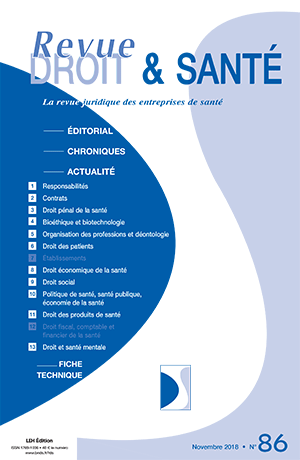0
Panier
0 €

Prémices de la traduction juridique du vieillissement actif en France et en Chine
Citer cet ouvrage :
Bachri Jalila, Prémices de la traduction juridique du vieillissement actif en France et en Chine ,RDS, n°86, 2018, p.880-886
Exporter vers RIS
Télécharge un fichier pour utilisation dans EasyBib, Mendeley, Zotero, etc.
EXPORTER vers RIS
Télécharge un fichier pour utilisation dans EasyBib, Mendeley, Zotero, etc.
EXPORTER vers RIS



